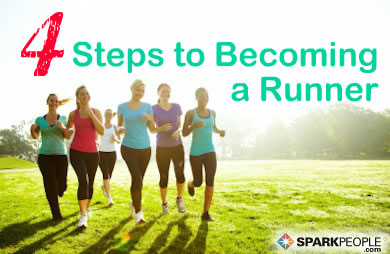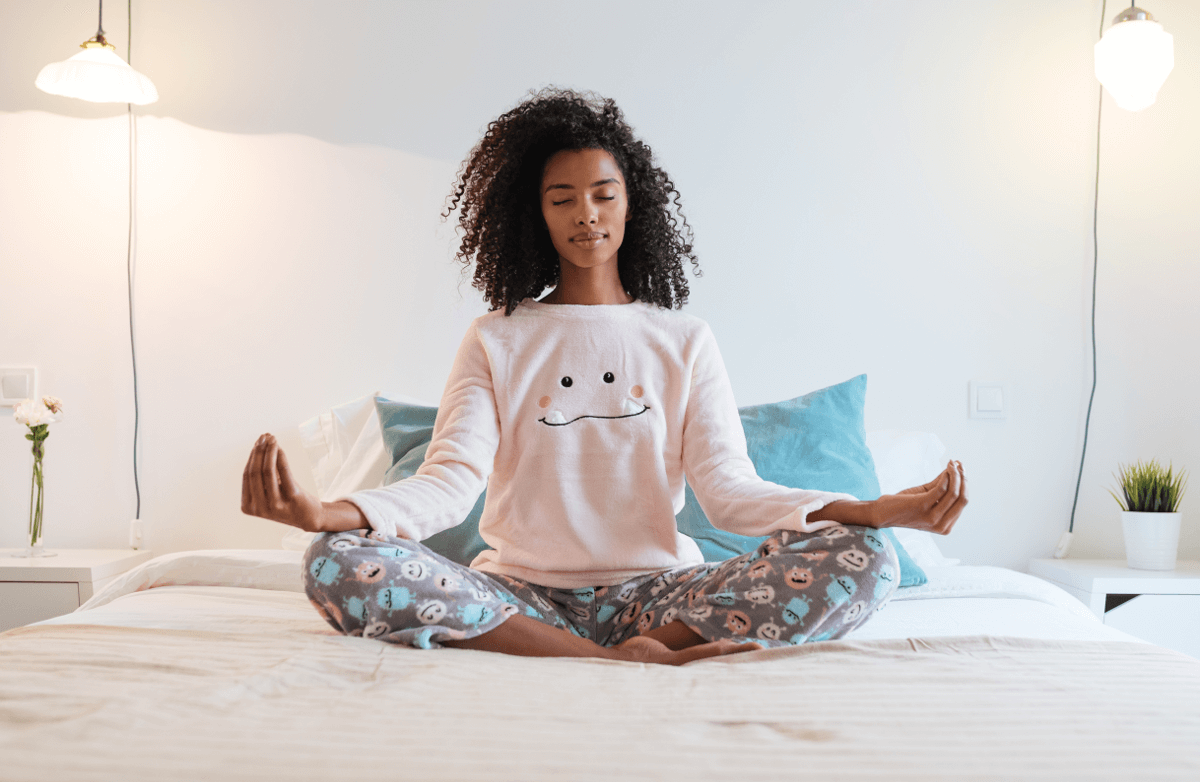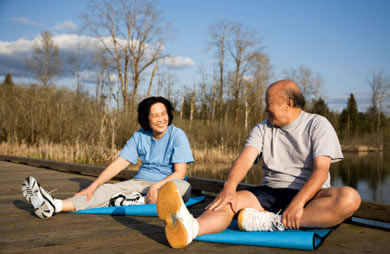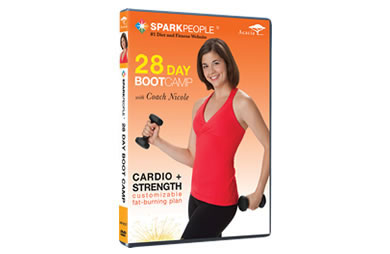You want to be a fit person, right? That's why I'm sharing my own habits for keeping fit and staying healthy in the ongoing Habits of Fit People series.
Here's one that works for me: Listening to my body. It may seem counterintuitive to the "no pain, no gain" philosophy so that so many subscribe to, but listening to how you feel really makes a difference in your workouts. How?
Your body is one smart cookie. If you're really listening, it'll tell you important things like when you're tired, hungry, stressed or sick, and hopefully, you'll trust your body and honor its signals most of the time. But it can also give you signs when you're sore, injured, or exhausted—all of which could be clues that you need to cut back on your current workout routine. The opposite is also true; I find that I can tell when I have energy to burn, which often happens if I'm slacking in the gym or having a really stressful workday. On those days, I want and NEED a good, tough workout to combat stress and use up my pent up energy.
Here are some of the ways I listen to my body when it comes to fitness. Most of these are a combination of listening and knowing how to remedy the situation that arises. - Take time for recovery if you're injured. I can't tell you how many times someone asks me what they can do to exercise despite being told by their doctor or physical therapist that they need to rest. Rest is important for recovery—a fact that some of us have learned the hard way. Before I became a Pilates fanatic, I had some lower back issues. I'd throw out my back and be unable to walk or stand upright for days at a time. My health care provider watched over me and gave me specific guidelines for exercise: I could only walk on a treadmill for cardio, going no faster than 4.0 mph; and I had to reduce the amount of weight I lifted at the gym if I noticed that it compromised my form or alignment even the slightest bit. This went on for months and although it was really frustrating to not work as hard as I knew I was capable, I knew that too much impact or too much strain would make my injury worse—and my recovery period even longer.
- Make time for sleep. Whenever someone asks me what is most important, getting up early to exercise or sleeping, you may be surprised to hear that my answer is always sleeping. This is only the case, however, if you feel exhausted OR you are not getting adequate sleep (think 7-9 hours per night) on a usual basis. The occasional night with poor sleep won't kill you (although your workout may suffer), but forgoing sleep for the long haul in order to exercise will cause problems. I wake up early to work out a few times per week and I'm pretty good at sticking with that. But occasionally, I'm just too darn tired to make myself get out of bed. On those occasional days, I listen to my body and honor my desire to sleep, which means my workouts are actually better in the following days. Similarly, the first sign that I'm coming down with an illness is usually extreme tiredness. On those days, I take a sick day from work and hit the sack, sleeping as long as possible and skipping the gym. Usually, after a good day of rest like that, I can prevent that illness from getting the best of me—but when I ignore that exhaustion I know so well (opting to stay away and exercise as usual), it always comes back to bite me!
- If it hurts, stop. This is important exercise advice for anyone. If you feel sharp pain or discomfort during any type of workout, don't push through the pain. Doing so can result in serious injury that will sideline you for a long time—talk about frustrating! Listen to your body: It's telling you to slow down or stop.
- If you feel tired, do less. I love working on new workout streaks, where I exercise as many days in a row as possible. But I definitely don't do maximal, high-intensity workouts on every single one of those days. In fact, I usually let my energy levels and body awareness dictate how hard I work. While I love to run fast and for long distances, some days I head out, planning to do 6 hard miles, only for my legs to feel like lead and my heart rate to race at a slow clip. I take that as a sign that I need to go easier that day, even if it means not fulfilling that particular goal. I'll slow down, ignore my pace, and run a shorter distance, usually even throw in a few recovery intervals of walking. This is one of the ways that you can stay active and make fitness a habit, but without overdoing it.
You might say, "My body never wants to exercise! I'm tired! Sore! Old! If I listen to my body, I'll never work out!" You may feel that way now, especially if you're new to exercise or just getting back onto the exercise wagon. Most likely, we feel this way because we've ignored our bodies for so long that we've lost the desire to exercise. As kids we called it playing, and it was fun. But as adults, it's a "work"out. But if you truly listen to your body, it does want to move and be strong and fit. Once you get in the habit, it'll tell you that more often—but also give you cues when it needs a little downtime from the gym.
Put simply, listening to your body will help you stick with a workout routine, prevent injury—and make it more enjoyable, all of which will help you make exercise a lifelong habit.
Do you listen to your body when it comes to planning (or sometimes skipping) workouts? Does this habit work for you?
|
|







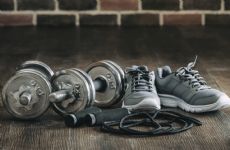
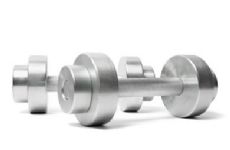
.jpg)
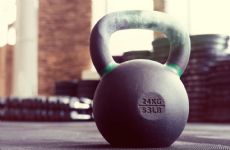
.jpg)







